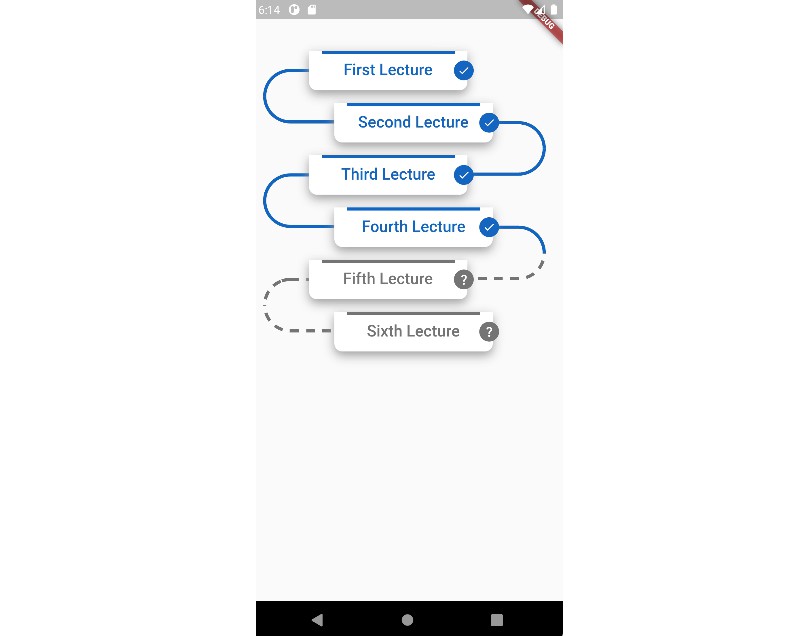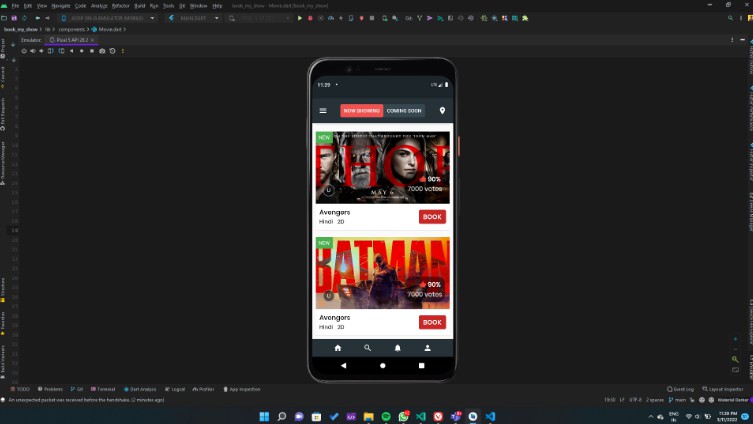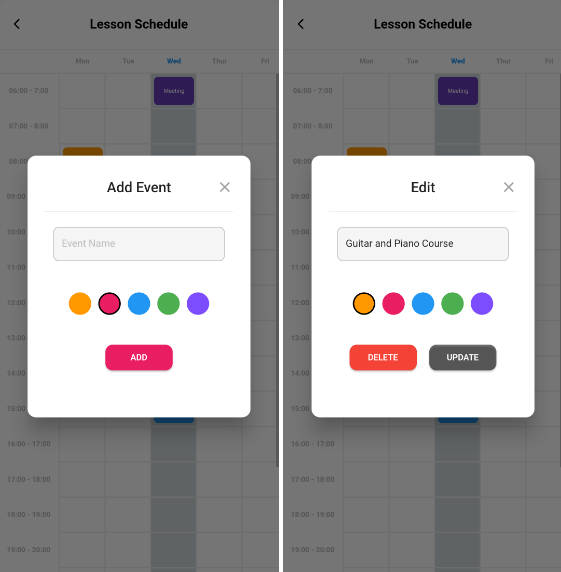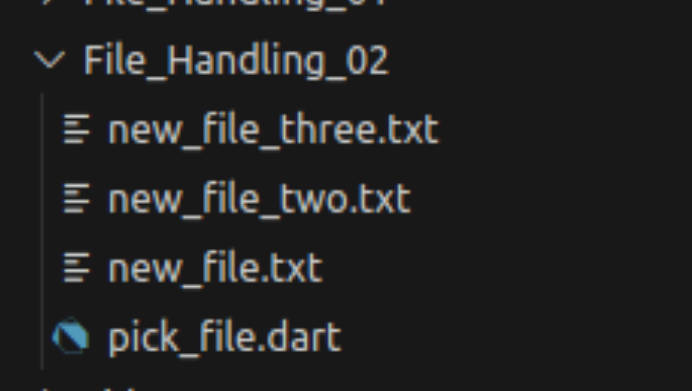A lightweight and powerful Job Scheduling Framework.
1. About
The batch library was created to make it easier to develop job scheduling and batch program in Dart language. It supports easy scheduling using Cron and it is a very lightweight and powerful.
Caution:
This framework is still in beta and so may contain disruptive changes in the release.
1.1. Features
- Very powerful batch library written in Dart.
- Multiple job schedules can be easily defined.
- Intuitive and easy to understand job definitions.
- Easy scheduling of job execution in Cron format.
- Powerful and customizable logging functions without the need for third-party libraries.
- You can develop with Dart’s resources!
1.2. Basic Concepts
The processing of the batch library is mainly performed using the following elements.
| Description | |
|---|---|
| Job | Job is defined as the largest unit in a batch execution process in batch library. Job has a unique name and manages multiple Step. |
| Step | Step is defined as middle unit in a batch execution process in batch library. Step has a unique name and manages multiple Task. |
| Task | Task is defined as the smallest unit in a batch execution process in batch library. Task defines the specific process to be performed in the batch processing. |
The concepts in the table above are in hierarchical order, with the top concepts encompassing the lower elements. However, this hierarchy only represents the layers of processing, and the higher level processing does not affect the lower level processing and vice versa.
1.3. Introduction
1.3.1. Install Library
With Dart:
dart pub add batch
With Flutter:
flutter pub add batch
1.3.2. Import It
import 'package:batch/batch.dart';
1.3.3. Use Batch library
The easiest way to use the batch library is to create a class that implements Task and register it to Step and Job in the order you want to execute.
The execution schedule is specified for each job when creating a Job instance in the form of Cron.
When creating Job and Task instances, the names should be unique. However, you can use the same name for steps contained in different Job.
You can check the latest sample codes here!
1.4. Logging
The batch library supports logging since version 0.2.0.
The logging system provided by the batch library is a customized library of Logger, and is optimized for the batch library specification. Also the logging system provided by the batch library inherits many elements from Logger from this background.
The batch library provides the following logging methods.
| Description | |
|---|---|
| trace | A log level describing events showing step by step execution of your code that can be ignored during the standard operation, but may be useful during extended debugging sessions. |
| debug | A log level used for events considered to be useful during software debugging when more granular information is needed. |
| info | An event happened, and the event is purely informative and can be ignored during normal operations. |
| warn | Unexpected behavior happened inside the application, but it is continuing its work and the key business features are operating as expected. |
| error | One or more functionalities are not working, preventing some functionalities from working correctly. |
| fatal | One or more key business functionalities are not working and the whole system doesn’t fulfill the business functionalities. |
The logging methods provided by the batch library can be used from any class that imports batch.dart. Besides there is no need to instantiate an Logger by yourself.
All you need to specify about logging in batch library is the configuration of the log, and the Logger is provided safely under the lifecycle of the batch library.
See the sample code below for the simplest usage.
import 'package:batch/batch.dart';
class TestLogTask extends Task<TestLogTask> {
@override
void execute() {
trace('Test trace');
debug('Test debug');
info('Test info');
warn('Test warning');
error('Test error');
fatal('Test fatal');
}
}
For example, if you run sample code as described earlier, you will see the following log output.
yyyy-MM-dd 19:12:42.860904 [info ] (_BatchApplication.run:117:11 ) - Logger instance has completed loading
yyyy-MM-dd 19:12:42.863685 [info ] (JobScheduler.run:37:9 ) - Started Job scheduling on startup
yyyy-MM-dd 19:12:42.864049 [info ] (JobScheduler.run:38:9 ) - Detected 2 Jobs on the root
yyyy-MM-dd 19:12:42.864413 [info ] (JobScheduler.run:45:11 ) - Scheduling Job [name=Job1]
yyyy-MM-dd 19:12:42.880243 [info ] (JobScheduler.run:45:11 ) - Scheduling Job [name=Job2]
yyyy-MM-dd 19:12:42.882694 [info ] (JobScheduler.run:55:9 ) - Job scheduling has been completed and the batch application is now running
Note:
The setup of the logger is done when executing the methodruninBatchApplication.
If you want to use the logging feature outside the life cycle of thebatchlibrary,
be sure to do so after executing therunmethod of theBatchApplication.
1.4.1. Customize Log Configuration
It is very easy to change the configuration of the Logger provided by the batch library to suit your preferences.
Just pass the LogConfiguration object to the constructor when instantiating the JobLauncher, and the easiest way is to change the log level as below.
BatchApplication(
logConfig: LogConfiguration(
level: LogLevel.debug,
),
);
Also, the logging feature can be freely customized by inheriting the following abstract classes and setting them in the LogConfiguration.
| Description | |
|---|---|
| LogFilter | This is the layer that determines whether log output should be performed. By default, only the log level is determined. |
| LogPrinter | This layer defines the format for log output. |
| LogOutput | This is the layer that actually performs the log output. By default, it outputs to the console. |
Also, the batch library provides several classes that implement these abstract classes, so you can use them depending on your situation.
1.4.2. LogOutput
| Description | |
|---|---|
| ConsoleLogOutput | Provides features to output log to console. This filter is used by default. |
| FileLogOutput | Provides features to output the log to the specified file. |
Example
BatchApplication(
logConfig: LogConfiguration(
output: ConsoleLogOutput(),
),
);
1.5. Contribution
If you would like to contribute to the development of this library, please create an issue or create a Pull Request.
Developer will respond to issues and review pull requests as quickly as possible.
1.6. License
Copyright (c) 2022, Kato Shinya. All rights reserved.
Use of this source code is governed by a
BSD-style license that can be found in the LICENSE file.
1.7. More Information
Batch was designed and implemented by Kato Shinya.





